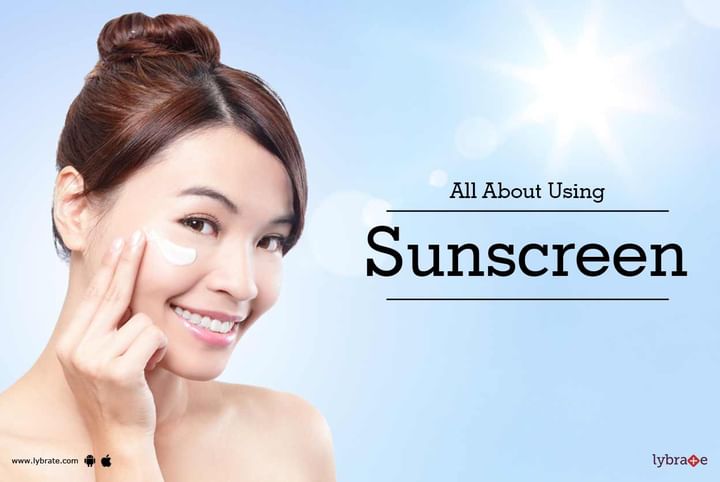Get the App
For Doctors
Login/Sign-up
Last Updated: Jan 02, 2024
BookMark
Report
All About Using Sunscreen
Dr. Pradeep KumariDermatologist • 23 Years Exp.MBBS, MD - Dermatology, F.C.P.S.(Dermatology, Venereology & Leprosy), Diploma in Venerology & Dermatology (DVD), DNB (Dermatology)
The sunscreen acts as a layer of defense against sun radiation and keeps it from causing any damage. It is tremendously important to stress upon the importance of using sunscreen. Using a sunscreen every time you step outdoors and using it correctly is of vital importance to have healthy skin. No sunscreen provides absolute protection from the harmful rays of the sun, but using the right product in the right way will take you far in shielding yourself from their harshness.
Two important facts about sunscreen are:
- You don't need to apply sunscreen if your makeup contains SPF - If any of your makeup products like foundation or powder contains SPF, do not assume that it can replace your sunscreen. Makeup containing SPF cannot protect your skin entirely as cosmetics are generally applied lightly and mostly doesn't cover places like T-zones, earlobes or hairline. To fully shield your skin from the sunrays, it's necessary to apply sunscreen or moisturizer with at least SPF 30 before putting makeup on. It is advisable to apply the sunscreen half an hour before stepping out for maximum benefit.
- You do not need to apply sunscreen in winters or when you are indoors - Winter skin is relatively more sensitive than summer skin which is tanned. If one is in hilly areas or snow covered regions there is reflection of UV light from the snow that causes more skin damage. Also glass can allow UV rays to pass through and indoor lighting can also be a source of UV exposure, therefore you should apply sunscreen even when you are indoors.
Following are the do's and don'ts you need to follow before you apply sunscreen:
- Do: Choose a sunscreen that is, at least, SPF 30+: That is the minimum protection that your skin requires. And if you must stay outdoors for an extended period of time, opt for a product with a higher SPF rating.
- Do: Apply sunscreen 15-30 minutes before going outdoors: For the product to be most effective, it needs to be fully absorbed by the skin before exposure to the sun; the reason why applying approximately 30 minutes before you step out of home is a must.
- Don't: Apply sunscreen only on the face: Make sure you apply it to every part of your body, especially the hands, forearms, thighs and ears, which are commonly exposed to the sun. Not only are these more prone to skin ageing, but the risk of melanoma (skin cancer) is also tremendously high in these portions of the body.



+1.svg)
